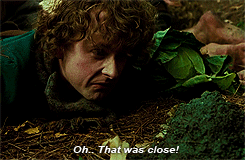Civilization is an organism.
It's made up of walls, buildings, plowed fields, books, laws, ideas, people.
The objective of an organism is survival, for self and kind.
Civilization spreads.
At it's heart, civilization is our attempt at controlling our surroundings.
It starts out with ignorance: we don't know where the sun goes at night, where the stars go after dawn, why it rains one day and is sunny the next.
From there, we start to wonder, we come up with ideas for why things are the way they are: storms are when the gods are angry, the sun dies and is reborn every day, and the stars are the souls of our ancestors looking down at us.
That's just how we work. Observe, look for patterns and meaning, then adapt. That's how we, as a species, survive. You have to know what lies over the next hill, because whatever is over there could be the difference between life and death.
But there's always another hill.
So we build walls to keep the Outside out and the Inside neat and tidy. We build houses to shelter us from the environment. We till the earth so that it will grow, or lay down stones to build roads. Animals are tamed, plants are bred and grown. It's a game of control as we eliminate variables.
Observe, find a pattern, form ideas. You have to understand the world around you before you can master it, so civilizations exists in a metaphysical space, a division between the known and unknown.
Sometimes, civilization sprout up beneath an individual. A monarch, a tyrant, a despot, a leader. These civilizations are extensions of the individual's will. Anyone that resists is removed from the equation, like how an immune system reacts to a foreign body. It's all about control. You have to remove the variables.
But these organisms don't last. Once the head dies, so does the body. Or what if the head loses the favor of its body, to find it has turned against him.
So you create things that last. Longer than walls, longer than roads, something that will be passed on. Laws. Boundries. A code. A concept. An idea. A nation. A flag. You draw an invisible line in the sand so that everything is either Inside or Outside.
Laws are the ageless walls within the realm of ideas.
Think of traffic laws for a moment. Everyone agrees that we will drive on the right side of the road (or left, depending on where you are). Follow the laws. Draw withing the lines. You'll be safe. That 2 ton steel death-machine that you're driving? Don't worry about it. As long as you follow the Rules of the Road, you'll be safe.
We know that's not true. We know unexpected things happen. Machines break down, weather changes, people make mistakes. But deep down, don't we think that as long as you do what you're "supposed to" that you'll be okay?
Nothing MAKES us drive on the correct side of the road. It's a choice that we each make. A series of individuals. You have no certainty that someone will decide to drive on the Other side today, you know... just for a change of pace.
Is it a system now? Is it orderly? No, it just takes that one stray element to create chaos.
It's amazing that we can get anything done.
So... Why? What's the point?
We know that if we all agree on the same laws, we will all be safer for it. You give up the freedom to drive on the Other side for safety. That's smart. That's what keeps us alive, the ability to act as a larger organism.
Laws only exist when people follow them. We keep them alive. We pass them down from parent to child, teacher to student.
And so the organism lives on.
We see more, we learn more, we build more.
And so the organism thrives.







